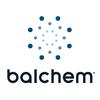Israel - an example for sustainable milk production under harsh and hot climate conditions
Published: December 14, 2022
Source : Israel Flamenbaum, Ph. D. / Cow Cooling Solutions, Ltd., Israel.
Israel is located in the eastern basin of the Mediterranean Sea and is characterized by a subtropical climate. Summer lasts from June to October and is characterized in most regions of the country by high temperatures and humidity at all hours of the day, but no rain at all.
The Israeli dairy industry has about 120,000 cows that produce close to 1.5 billion liters per year. The annual milk yield per cow is the highest in the world and stood at more than 12,000 liters in 2021. The founding fathers of the Israeli dairy industry began nearly a hundred years ago to breed a cow adapted to local conditions, using a local breeding system. They also understood that, due to climatic reasons, the cows must be completely confined, without grazing and learned how to develop feeding methods that replace the missing high quality roughage with agro industrial and human food industry by-products.
Over the years and the genetic progress in milk production, the milk producers in Israel had to develop and implement advanced methods to cope with heat load, through intensive cooling of the cows. This makes it possible to achieve the high milk yields, even within the climatic and environmental limitations that exist in the country.
The Israeli dairy industry is one of the leaders in the world, in regards to sustainable milk production, thanks to the following:
1. The lack of water and the need for irrigation to grow fodder, led Israeli farmers to purify large volumes of municipal wastewater (Israel is a world leader in this matter), as well as to develop water-saving irrigation methods such as drip irrigation (a method developed in Israel).
2. The scarcity and high cost of high quality roughages in Israel led the milk producers to replace part of this ingredient with leftovers and by-products from the agricultural and food industries, thus earning twice. On the one hand, to save and replace the use of part of the conventional food and on the other hand to save on transportation costs of waste materials for landfilling in the desert areas of southern Israel.
3. The high cost of man power in Israel led to the development of advanced technologies for management and control, that enable savings in the investment of working time per liter of milk produced. Israel is a world leader in the development of computerized milking systems that include the early detection of management and health problems and their treatment in real time. One more way to enable obtaining high milk yields per cow.
4. Using intensive measures to cool cows in the summer that were developed over the past 40 years in Israel, allows for a significant reduction in the decrease in milk production in this season, as is the case in most hot countries, and recently also in Europe and the North of the USA. The benefits from the implementation of these means are in different aspects as:
- From an environmental point of view, the higher the milk yield, the more the industry can satisfy the country's milk needs with fewer cows and hence the methane greenhouse gas emissions to the atmosphere per liter of milk are lower.
- In terms of the health of the cows, preventing cows from being in “heat stress” strengthen their immune system and reduce morbidity, especially in the critical period around calving, as well as reduce the number of cows suffering from mastitis. Beyond the economic advantage that this has, you can expect savings in the use of medicines, for the positive aspect that this has from an economic and environmental point of view.
- From an economic point of view, as the yield of cows is higher and fewer cows are required for its production, the feed required for their maintenance of these cows is saved, and as a result, the food requirement per liter of milk produced is lower, so production costs decrease.
In conclusion, the Israeli dairy industry is a small but sophisticated and very efficient environmentally and economically. The knowledge and experience gained during the production of milk in Israel is learned these days by dairy farmers from all over the world, especially those who come from “developing countries”, who try to establish dairy farms in difficult conditions, similar to those existing in Israel. Making use of the knowledge accumulated from the 120 thousand cows in Israel by the 270 million dairy cows existing today in the world, and increasing milk yield of each “world cow” by only 10% beyond what it currently produces, will allow produce global milk with about 30 million cows less, for all the environmental and economic benefits that this entails, and which are presented in this article.
Related topics:
Authors:
Recommend
Comment
Share
15 de diciembre de 2022
I would love to know the technology they use to keep cows cool in hot humid weather to achieve their production and conception targets
Thanks
Recommend
Reply

Would you like to discuss another topic? Create a new post to engage with experts in the community.










